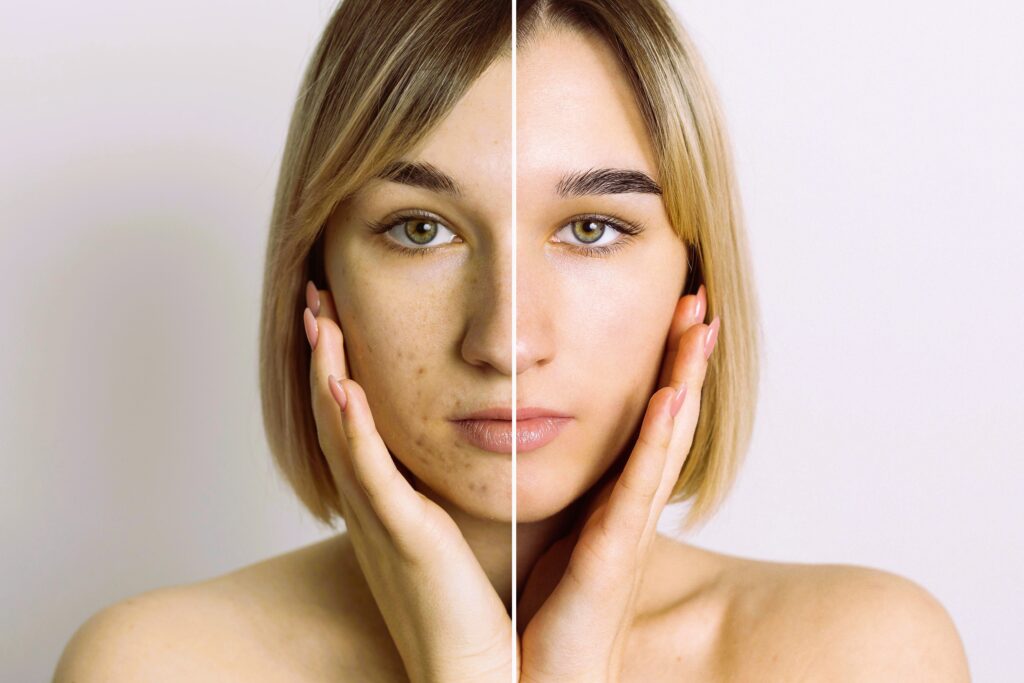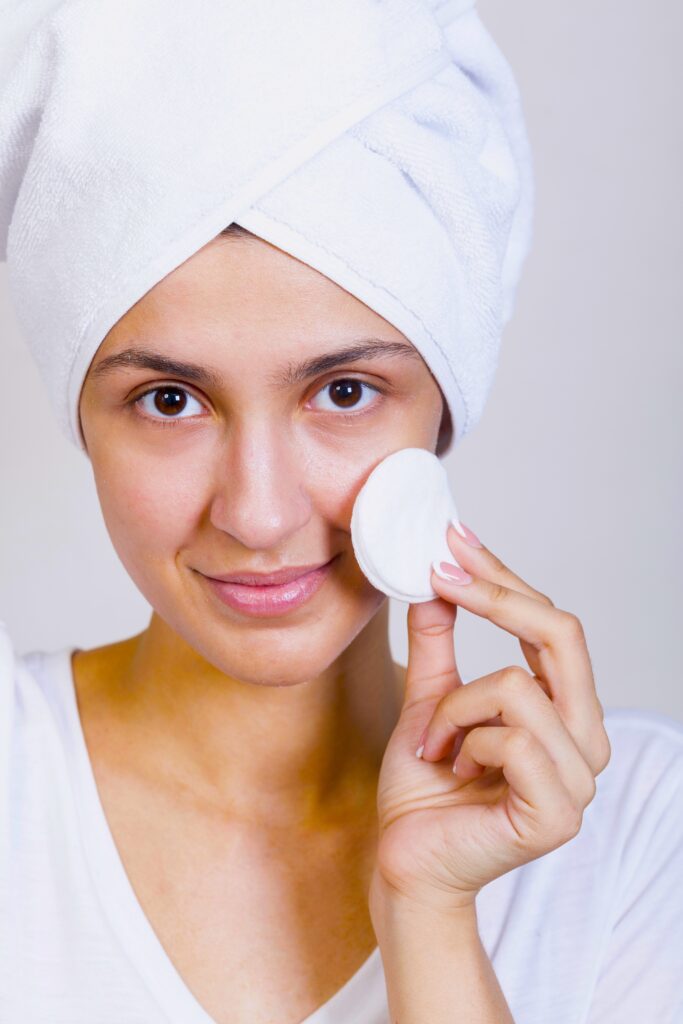Table of Contents
Introduction
Ashwagandha’s popularity has increased in recent years due to its valuable characteristics, as people look for different natural ways or products to eliminate stress and anxiety or to stay healthy in their daily hectic lifestyles, which will cure these problems without causing any side effects to their health. Not only just stress and anxiety but also they prefer ashwagandha for skin care as well. It is one of the most important herbs in Ayurveda and is known as ‘Indian Ginseng’ or ‘Winter Cherry’ as well. People have been using Ashwagandha roots and orange-red fruits for medicinal purposes or treatment for hundreds of years.
Does Ashwagandha Improve Your Skin?
In Ayurveda, Ashwagandha has been known for centuries as a miraculous and natural beauty herb that answers or fixes various problems. Benefits of Ashwagandha for skin includes many effcient things. This herb helps to reduce either acne or pimples on your face skin, promotes healthy complexion and collagen production, and also gives a natural glow to the face.
When the pores on our face become swollen and blocked with excess oil, the result is acne. The solution to this problem lies in Ashwagandha’s anti-inflammatory and anti-bacterial properties. Along with this, the alkaloids present in it act on the human nervous system, helping to reduce the anxiety and depression present in a normal human being’s daily busy lifestyle, which directly affects the health of their skin.

Supplement For Dry Skin
Dry skin can also be one of the many facial problems. A human’s skin can feel dry due to because of a variety of problematic factors such as not exfoliating regularly, washing excessively, dehydration or malnutrition, using harsh products, or the side effects of certain skin conditions or certain medications.
This can cause you to experience irritations such as tight skin, hydration, or itching. In such a situation, one of the many valuable properties of Ashwagandha, i.e. moisturizing, can play an important role here. So in such situation, you can add Ashwagandha for skin in your daily routine.
Minimizes Hyperpigmentation
Our skin can face problems like pigmentation due to various reasons. This includes the harmful UV rays from the sun, which cause our skin to synthesize excess melanin, which can cause darkening of the skin in certain areas. That’s where Ashwagandha can help in healing hyperpigmentation by controlling the overproduction of melanin & act as a natural powerful weapon.
How To Use Ashwagandha For Skin?
Here are the following different ways in which you can add Ashwagandha for skin care in your daily routine.
1. Ashwagandha as a Face Pack
You can use Ashwagandha for skin in the form of face pack in following different ways.
- Prepare a face pack by mixing Ashwagandha powder with almond or coconut oil to get glowing skin. After mixing the oil and powder, apply the face pack on the face and massage it. Leave it on for a few minutes to allow the prepared face pack to penetrate deep into the skin of the face. After a few minutes, wash your face with clean water.
- Along with this, instead of oil, mix 1/2 teaspoon of Ashwagandha powder with water or honey to make a paste. Apply the paste on your face, leave it for some time until it dries. Then wash it with clean water.
- Alternatively, are you using Ashwagandha for exfoliation? If so, mix 100% natural Ashwagandha fine powder, gelatin and some water and rub it on your face and leave it for 10 to 15 minutes and wash it off. This mask is good for your skin, exfoliating and brightening. This will clean the pores on the face.
2. Ashwagandha As A Face Toner

Using a daily face toner is an alternative, but dry or damaged facial skin will benefit from using a daily face toner. Because toners help in balancing pH, tone brightens, while not only reducing the appearance of enlarged pores, but also increasing skin hydration. You can make your face toner by mixing ashwagandha powder and rose water together. So in this way as well, you can easily add Ashwagandha for skin care routine.
3. Ashwagandha As An Oral Consumption
You can also add Ashwagandha for skin care & general well-being by taking it orally in a variety of following different ways.
- Take 1/2 teaspoon of ghee, 1/2 teaspoon of Ashwagandha powder and honey in a bowl and mix it well and consume this mixture twice a day.
- As yet another alternative, add 1/2 teaspoon of Ashwagandha powder to a glass of warm milk and consume it at night before going to bed. This will help you to sleep better and relax the body.
- Additionally, ashwagandha can be taken as a tablet or gummy, which can help with stress relief and enhance concentration and memory.
Side Effects Of Ashwagandha
There are some possible side effects while adding Ashwagandha for skin or health into your daily routine are as follows:
- One of the common side effects when using Ashwagandha is gastrointestinal distress, which includes things like stomach pain, diarrhea, or nausea. People who take higher doses of ashwagandha can experience various side effects from above, so it’s important to talk to your healthcare provider before adding this new herb to your daily routine at the recommended dosage.
- Less common side effects of Ashwagandha include drowsiness, dizziness, cough and congestion, rash, dry mouth, weight gain, hallucinations, and blurred vision.
- Ashwagandha can also be harmful to the liver. So, if you experience any side effects while consuming it, immediately visit either a healthcare provider or an Ayurvedic doctor for their valuable advice.
Precautions With Ashwagandha
Before using ashwagandha for skin or overall health, it is important to understand under what conditions or situations and for whom ashwagandha should be avoided. This includes individuals who are either pregnant, or have thyroid-related disorders, or are breastfeeding.
Along with this, if a person has undergone any type of surgery recently or is going to have an upcoming surgery, they should also avoid consuming it.
What Is Ashwagandha ?
The nutritional composition of Ashwagandha is composed of various components such as withanolides, alkaloids, iron, amino acids, vitamins, and minerals. All these ingredients hold antioxidative, anti-inflammatory, and adaptogenic properties, which help in keeping common people healthy.
‘Ashwagandha’ is a Sanskrit word and the name refers to the smell emanating from the roots of this plant, which is horse-like. ‘Ashwa’ means ‘horse’ in Sanskrit. This herb is a kind of small evergreen shrub primarily in areas like Asia and Africa.

Other Crucial Benefits Of Ashwagandha
Rather than benefits of Ashwagandha for skin, it has the following major wellness advantages.
1. Helps To Manage Stress & Anxiety
When we refer to Ashwagandha as an adaptogenic herb, it means that the herb helps to cope with and reduce the stress of our daily life due to its beneficial properties, i.e. it helps to reduce stress hormones and cortisol levels.
When you’re stressed, the body’s elevated cortisol levels cause excess cortisol to be released into the bloodstream, which can be harmful to your health. Therefore, proper cortisol balance in the body is essential to stay healthy.
As a result, a person can experience less stress, improved mood, and better mental health. Instead, having too high or too low cortisol levels in the body can lead to health problems.
2. Assists In Lowering Blood Sugar Levels
Higher cortisol levels in the body can simultaneously result in higher blood sugar levels and excess abdominal fat storage. Studies have shown that Ashwagandha plays an important role in lowering blood sugar levels by increasing insulin secretion and improving insulin sensitivity in muscle cells.
Insulin is a type of hormone that is produced in the pancreas of every human body and whose function is to transport blood glucose that is blood sugar flowing through our body’s bloodstream to all the cells in the body.
3. Enhances Utilization Of Testosterone Hormone

As mentioned earlier, it also has powerful antioxidant properties that help to protect against cellular damage caused by free radicals. Studies have also shown that Ashwagandha supplementation has a powerful effect on testosterone levels in the human body as well as on male reproductive health. Infertile men have been shown to increase sperm count and motility after treatment with it. This increased the antioxidant levels in their blood which ultimately improved fertility.
4. Anti-inflammatory
As we already know, Ashwagandha consists of such nutritional ingredients which hold antioxidative, anti-inflammatory, and adaptogenic properties. It helps to increase the activity of natural killer cells or human immune cells, which fight against various diseases or infections, and thus helps in boosting immunity, thereby reducing inflammation in the targeted areas.
5. Promotes Strength Building & Muscle Mass
Not only this, Ashwagandha is also beneficial for gym enthusiasts. Speeding up muscle recovery after heavy daily workouts, which allows them to weight training in the harder way to achieve better gains. Behind the muscle recovery process, there are active compounds in it that have antioxidant and anti-inflammatory properties. Along with this, as an additional benefit of Ashwagandha, it also reduces the body fat percentage.

6. Enhances Brain Functioning
One of the most important brain-protective properties of Ashwagandha is that it can help in keeping the human brain healthy and prevent age-related cognitive loss.
Engagement and productivity require the highest levels of focus and attention. Some studies have also found that Ashwagandha has beneficial effects on certain cognitive areas. It has been found to have a positive effect on these cognitive areas.
7. The Positive Impacts On Hair
It is one of the main ingredients of shampoos made using ayurvedic herbs. It stimulates and improves blood circulation while massaging the scalp. It regulates the formation of dandruff and fights it. It is also known to increase the productivity of melanin, which gives your hair its natural color and also reduces graying.
8. May Diminish Triglyceride & Cholesterol Levels
High cholesterol levels in the body can cause cholesterol and other unwanted deposits to build up on the inner walls of blood vessels. This can cause complications by reducing the blood flow through the arteries in our body. Additionally, high levels of triglycerides in the body can contribute to hardening of the arteries, or hardening of the artery walls, which increases the risk of stroke, heart attack, and heart disease.
Ashwagandha is associated with lowering triglyceride and cholesterol levels in the body, which is known to promote heart health. Additionally, it reduces chest pain and lowers high blood pressure, which helps to prevent heart-related problems.
Conclusion
Finally, Ashwagandha can act as an adaptogenic herb, if people consume it in recommended doses in their daily lives, not only to reduce acne or pimples on the face and increase collagen production but also to manage stress and anxiety in life as we discussed above. It can also play an important role in lowering blood sugar levels, improving testosterone levels, and increasing muscle mass and strength for gym enthusiasts.
It also contains ingredients that have human brain-protecting properties, which help in keeping the brain healthy in all aspects. All of these ingredients in Ashwagandha include anti-oxidant, and anti-inflammatory properties, which help us to maintain triglyceride and cholesterol levels in the body and have a significant effect on our hair protection as well. Hence Ashwagandha is recognized as the ‘Indian Ginseng‘ as one of the most important herbs in Ayurveda.
FAQs (Freqently Asked Questions) :
1. How to use Ashwagandha for skin ?
Prepare a face pack by mixing Ashwagandha powder with almond or coconut oil to get glowing skin. Alternatively, you can make a mixture of 1/2 teaspoon of Ashwagandha powder with water or honey to make a paste, then apply it on the face.
2. Are Ashwagandha gummies safe ?
Yes, It is safe to consume Ashwagandha gummies regularly, but an individual should never exceed the recommended dosages or time frames. Processing Ashwagandha to obtain its cleanest form is required since it may include impurities like dirt and heavy metals.
3. Who should not take Ashwagandha ?
There are some circumstances in which Ashwagandha consumption should be avoided, including pregnancy, thyroid disorders and breastfeeding. Additionally, Ashwagandha should not be consumed by anyone who has just had surgery or who is scheduled to have surgery in the upcoming days.
4. What is Ashwagandha benefits for female ?
Hormone balance, improved menstrual health, less PMS symptoms, increased sexual health and fertility, assistance in easing menopause, and improved physical and mental health are just a few possible advantages of Ashwagandha for women.

